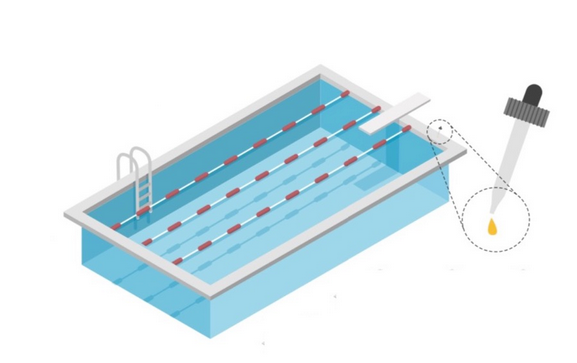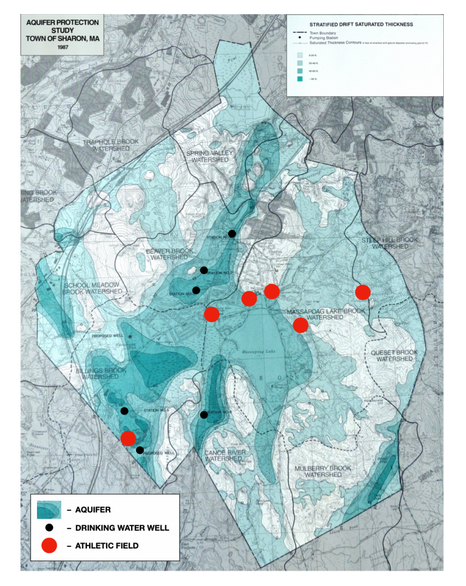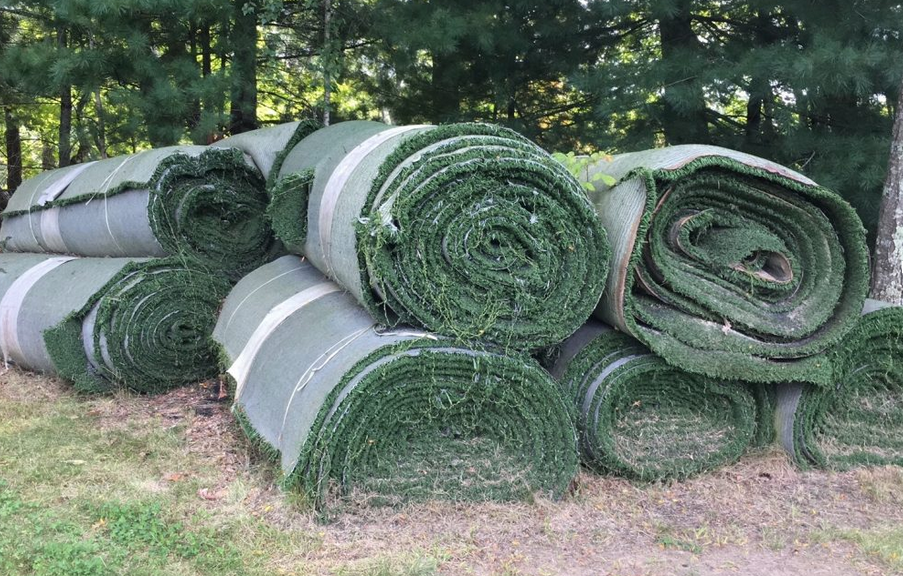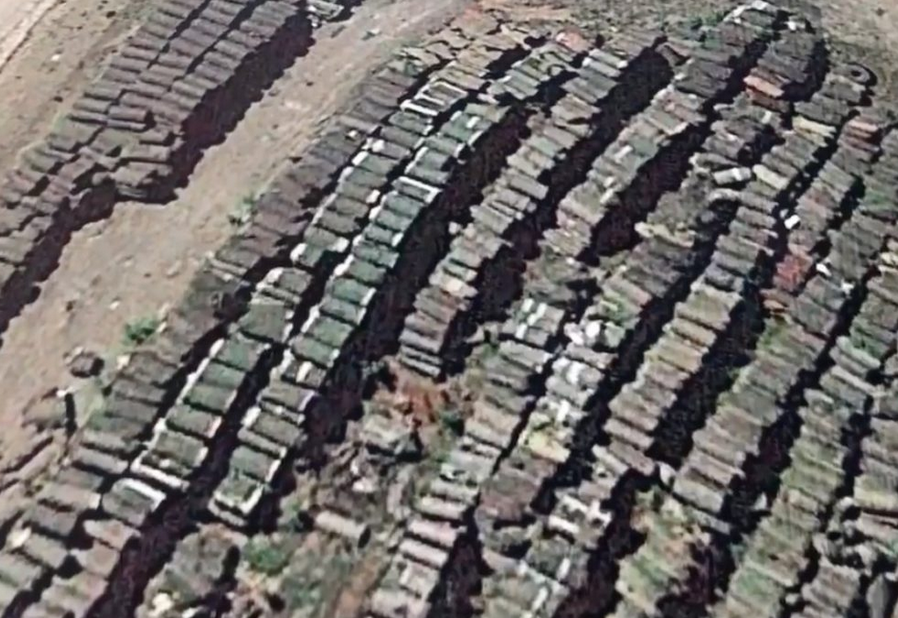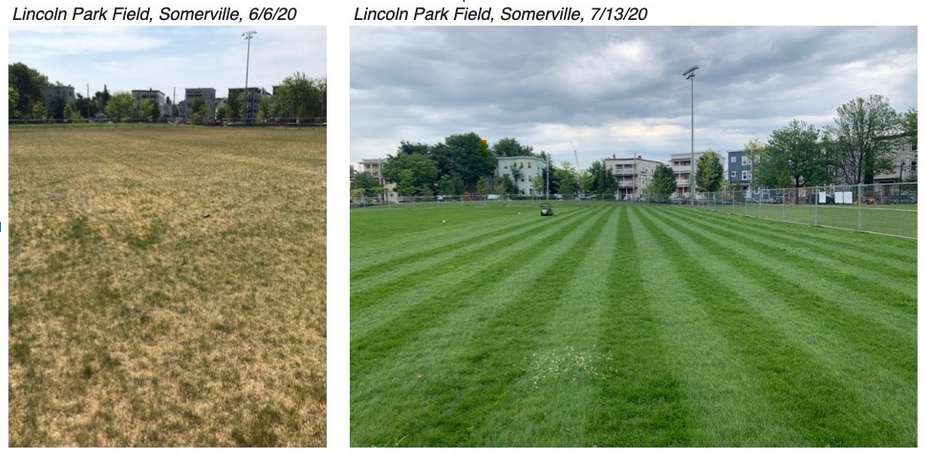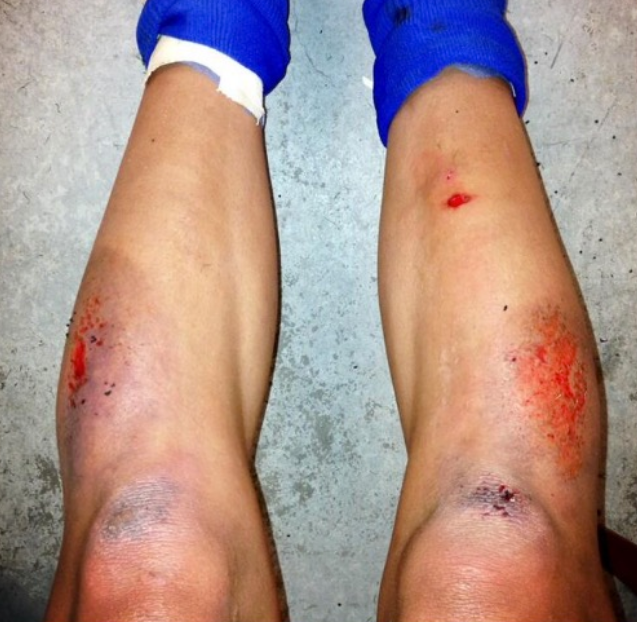9 Reasons to oppose artificial turf
1. Plastic turf contains toxic chemicals including flame retardants, UV inhibitors, plasticizers and PFAS. PFAS are “forever chemicals” that never break down, and accumulate in soil, water and our bodies.
The MA Department of Environmental Protection has established a new drinking water standard for PFAS of 20 parts per trillion – the equivalent of one drop in an Olympic swimming pool. We should not expose our student athletes and our drinking water aquifers to these toxic chemicals.
2. Toxic PFAS can leach into the environment
There are almost 5,000 different kinds of toxic PFAS (polyfluoroalkyl substances). The EXACT same kind of PFAS in rolls of worn-out plastic turf dumped near a wetland in Franklin, MA (September 2019) was also detected in water samples from a nearby wetland, showing that we should be concerned that PFAS can leach out of plastic turf and into the environment. Scientists are now studying this issue.
3. Plastic turf is a disposal nightmare
Plastic turf cannot be recycled, so worn-out turf ends up in landfills where its toxic ingredients slowly leach into the environment. Sharon should not contribute to this environmental disaster.
Above: Plastic turf dumped in Franklin near a wetland
Left: Piles of discarded turf in Pennsylvania
4. We should avoid toxic plastic pollution in Sharon
The mechanical wear from high tread loads causes plastic grass blades to break off, about 600 pounds per year. These plastic particles accumulate in the environment, and ultimately enter the food chain.
5. Plastic turf is expensive!
One plastic turf field will cost $1,000,000, and must be replaced every 8 to 10 years, not to mention the substantial costs of annual maintenance and end-of-life disposal. For more information on the high cost of plastic turf, click here.
For half that cost, all seven of Sharon’s natural grass athletic fields could be more intensively maintained for the benefit of all Sharon’s student athletes. With enhanced maintenance, Sharon’s natural grass fields could tolerate substantially more playing time.
These before-and-after photos show what 5 weeks of enhanced maintenance can accomplish.
6. Injuries are common with plastic turf
Professional soccer players refuse to play on plastic turf. The NFL Players Association is now calling for all NFL football fields to be natural grass. The NFLPA president stated that natural grass fields provide a much lower risk for injuries, compared to artificial surfaces, citing the league’s official injury reports from 2012-2018. That study showed that players have a 28% overall higher rate of non-contact lower extremity injuries on artificial turf. Non-contact knee injuries occur at a 32% higher clip and non-contact foot or ankle injuries are 69% percent more likely on artificial fields. Biomechanical studies have shown that synthetic turf does not release cleats as readily as natural grass, which may explain the difference in injury rates.
7. Plastic turf gets hot
Temperatures on plastic fields on warm, sunny days can become dangerously hot compared to natural grass, which remains relatively cool due to transpiration. The use of Brockfill might be preferable to crumb rubber, but it will not prevent field temperatures from rising above the 105º threshold for canceling sports events.
9. Other towns are getting good results with well-maintained natural grass athletic fields
Concerned Martha’s Vineyard citizens wrote this eloquent letter to their Planning Board. Sharon residents should also be concerned about the message artificial turf sends to our youth!
“ .... we understand that our planetary health depends on decisions large and small. We know we must break our addiction to the fossil fuel industry and instead invest in our soil to help it capture as much carbon as possible. We know we need to avoid the use of materials that further contribute to global warming and instead use plants to lower surface temperatures…. And we realize that we should avoid materials that add to our waste stream and instead embrace those that are regenerative.”
The people of Springfield clearly take pride in their healthy, organic natural grass athletic fields. This video describes their field maintenance program.

